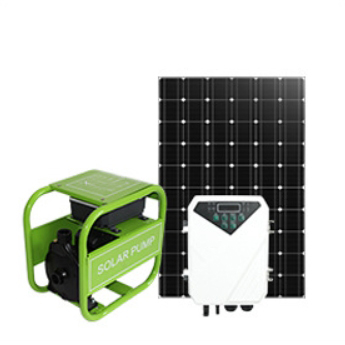Solar water pumps operate on photovoltaic (PV) cells which convert sunlight directly into electrical energy to power a water pump. This sustainable solution can be used for a variety of domestic purposes including drinking water supply, irrigation, and livestock watering.
Advantages of Solar Water Pumps in Home Use
Eco-Friendly and Sustainable
- Renewable Energy Source: Solar pumps use sunlight, a renewable energy source, reducing reliance on fossil fuels and minimizing carbon footprint.
- No Emissions: They operate without emitting any pollutants, making them environmentally friendly.
Cost-Effective
- Low Operating Costs: Once installed, solar water pumps require little to no electricity from the grid, significantly reducing monthly energy bills.
- Minimal Maintenance: These systems require less maintenance than traditional electric or diesel pumps, thanks to fewer moving parts and the absence of an engine.
Reliable Water Supply
- Continuous Operation: Capable of operating during power outages and in off-grid situations, ensuring a consistent water supply.
- Versatile Installation: Can be installed in various settings, including rural and isolated areas where electrical infrastructure is limited.
How Solar Water Pumps Work
The basic setup of a solar water pump system includes solar panels, a controller, a pump, and pipes. The solar panels capture sunlight and convert it into electricity. This electricity is then regulated by the controller to power the pump, which moves water from the source to your home.
Selecting the Right Solar Water Pump
Consider Your Water Needs
- Daily Usage: Estimate the amount of water needed daily for all household activities to determine the appropriate pump size.
- Source Type: Identify whether water needs to be drawn from a well, a borehole, a river, or a rainwater collection tank.
Calculate the Required Pump Capacity
- Flow Rate: The flow rate necessary to meet your daily water needs should be calculated to ensure the pump can handle the demand.
- Head: The vertical distance the water needs to be lifted from the source to your home also dictates the type of pump and its power requirements.
Installation Tips
Solar Panel Placement
- Optimal Sun Exposure: Place solar panels in locations that receive maximum sunlight throughout the day, free from shade or obstructions.
- Proper Angling: Panels should be angled based on latitude to maximize solar energy absorption.
System Setup
- Professional Installation: It is recommended to hire a professional to install your solar water pump system to ensure it is set up correctly and safely.
- Regular Maintenance: Schedule regular inspections and cleanings of the solar panels and pump components to maintain optimal efficiency.
Common Applications in Homes
- Gardening and Irrigation: Solar pumps are perfect for watering gardens, especially in regions with frequent sunlight.
- Domestic Water Supply: From showering to cooking, solar pumps can provide all the necessary water for a household.
- Livestock Watering: They can also be used to supply fresh water to livestock, making them ideal for rural homes.
Conclusion
Solar water pumps offer a reliable, cost-effective, and environmentally friendly solution for domestic water supply. By carefully considering your water needs and ensuring proper installation, you can enjoy the benefits of a sustainable water source. Whether for daily household use, gardening, or other needs, solar water pumps are an excellent investment for the eco-conscious homeowner.









